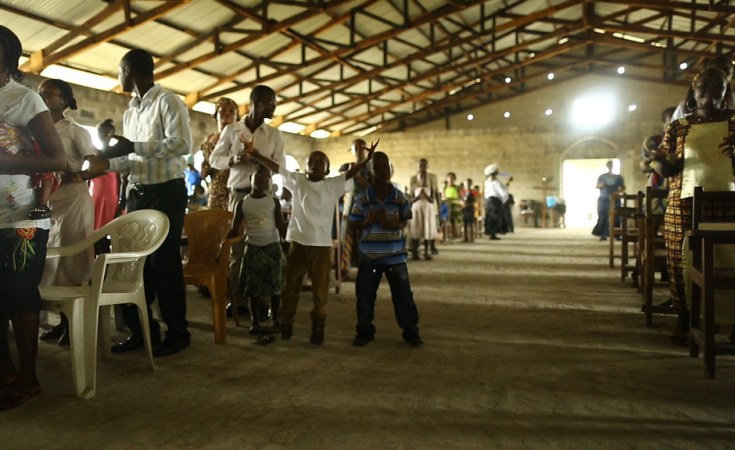The U.S. Department of State report on religious freedom sheds light on religious biases against Muslims, others.
Muslims reported the government provided disproportionately more subsidies to schools affiliated with Christian organizations than to those affiliated with Muslim organizations, according to the U.S Department of State 2023 Report on International Religious Freedom in Liberia.
The report, which covers traditional leaders, civil society groups, Christians, and Muslims, stated that Embassy staff routinely met with members of Christian, Muslim, Baha'i, and traditional religious groups, to discuss tolerance and the importance of religious leaders and working to bring communities together.
"Through meetings, consultations, and visits to religious sites during the year, embassy officials worked with influential religious leaders to emphasize peaceful reconciliation practices as the country continued to cope with the lingering effects of its civil wars," the embassy said.
According to the report, Muslim Chaplains are generally not present in most institutions. However, there are notable exceptions: the Supreme Court, the Armed Forces of Liberia (AFL), and the office of the President.
"In practice and by tradition, Christian chaplains led a Christian invocation before the start of public events or official government business, with an Islamic prayer at the end. With the exception of the Supreme Court, the Armed Forces, and the Office of the President, few, if any, institutions had Muslim chaplains to lead a benediction."
"During the July 21 Thanksgiving and Intercessory Service held at the Black Jina Central Mosque in Jacob Town, President Weah raised religious tolerance as an essential element to maintaining peace and harmony in the country. He appealed to Liberians to demonstrate maturity during the October 10 elections by voting peacefully."
According to the report, during the lead-up to the October 10, 2023, national elections, several political candidates used churches to send out campaign messages and criticize their opponents. Politicians expressed their opinions on the national observance of Islamic holidays.
"For example, press reports noted that incumbent President George Weah frequently made political statements from the pulpit in his church during the presidential election campaign, including criticism of political opponents such as Senator Prince Yormie Johnson. Johnson, for his part, leveled criticisms at President Weah during services at his own church."
"In a pre-election interview in the New Dawn newspaper, Tiawan Gongloe, presidential candidate of the Liberian People's Party, said that, because Liberia was the only country in West Africa that did not have an Islamic holiday, there was a need to strengthen religious tolerance by ensuring that Eid al-Fitr, marking the end of Ramadan, became a national holiday."
The report added that in the lead-up to national elections, the Catholic Bishops Conference of Liberia appealed to political parties and candidates to do their utmost to advance peace and ensure their supporters conducted themselves appropriately.
"Muslim religious leaders called for their adherents to remain calm despite campaign promises by some politicians to make the country a Christian state. Muslim religious leaders also urged their adherents not to vote for a candidate solely on the basis of pledges to mark Islamic observances as national holidays, if elected. In April, the leader of the Liberia Restoration Party, Allen Roosevelt Brown, promised to "redeem" the country's Christian faith by returning the country to a Christian state using the "trenches of politics." While addressing reporters in Monrovia, Brown stated the country was established "on the fundamental pillar of faith," although it was made a secular state by the 1986 constitution."
"Grand Mufti of the Fatwa Council of Liberia Sheikh Sumaworo called for unity and restraint among Muslims during his Eid al-Fitr message in April amid calls for official recognition of Islamic holidays or for a return of the country to a Christian state. Sumaworo exhorted followers to denounce those who "sow seeds of disunity" among Muslims."
Christians in Liberia constitute 84.9 percent, according to the 2022 National Population and Housing Census. Muslims consist of 12 percent. There are "2.6 percent persons who claim no religion, 0.5 percent adherents of traditional indigenous religious beliefs, and less than 0.1 percent members of other religious groups, including Baha'is, Buddhists, Hindus, Jews, and Sikhs. Muslim organizations state that Muslims constitute up to 20 percent of the population."
The African Methodist Episcopal, African Methodist Episcopal Zion, Baptist, The Church of Jesus Christ of Latter-day Saints, Episcopal, Jehovah's Witnesses, Lutheran, Presbyterian, Roman Catholic, Seventh-day Adventist, United Methodist, and Pentecostal churches are the largest Christian groups in Liberia.
According to the Set Free Alliance, a U.S.-based Christian outreach and humanitarian aid organization, the largest Christian denomination is the United Methodist Church. Most Muslims are Sunni. There are also small Shia and Ahmadi communities. Many members of religious groups also incorporate elements of Indigenous traditional beliefs and customs into their religious practices.
"Christians reside across the country. Muslims belonging to the Mandingo and Fula ethnic groups also live throughout the country, while Muslims of the Vai ethnic group live predominantly in Grand Cape Mount County in the west."
"The traditional Poro (for males) and Sande (for females) societies - often referred to as "bush schools" or secret societies - combine traditional religious and cultural practices and are present in the northern, western, and central regions of the country. Other traditional cultural and religious societies, including the Kui Society and the Bodio (priests of the Glebo people), reside primarily in the southeast."


